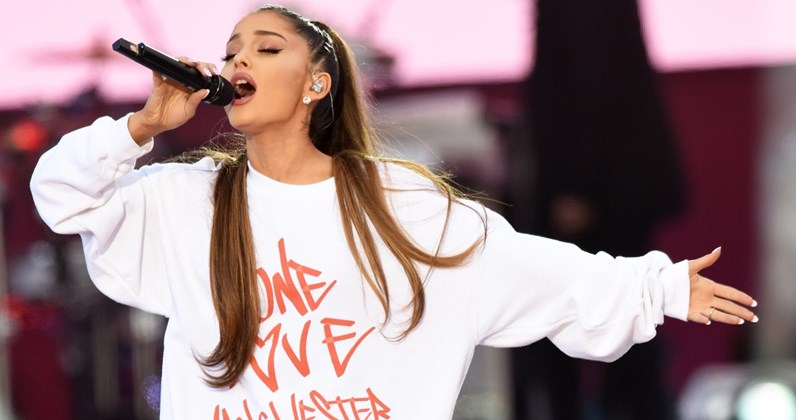On Monday, June 5, 2017, Ariana Grande hosted One Love Manchester, a benefit concert supporting the families of victims that lost their lives in the Manchester bombing, raising around $3 million. Throughout the night, Grande pushed a message of oneness, togetherness, and took to social media to eloquently state that “we will not quit or operate in fear. We won’t let this divide us. We won’t let hate win.”
Grande’s One Love Manchester came over over 45 years after George Harrison's Concert for Bangladesh at Madison Square Garden. The show put on by the ex-Beatle, commonly acknowledged as the first large-scale rock benefit concert, established a model of using the influence of music for humanitarian efforts and relief on a scale that had never been previously accomplished. Although One Love Manchester fits into this model, Grande’s gesture ultimately goes beyond the standard model of past benefit concerts.
Harrison’s career, as well as that of his co-performers Ringo Starr, Eric Clapton, and Bob Dylan (to name just a few) had always been politicized to a certain degree. Their very existence had always served to both represent and shape a counter-culture that sought to rebel against societal norms and expectations. The line up at Concert for Bangladesh consisted of artists that were not only known to, but in fact they were expected to, have a social consciousness. The concert, although a grand gesture, was not out of the norm for any of the performers. Further, the event raised awareness among a Western audience about the struggles faced by people thousands of miles away – people that most did not have direct connections with and could put out of their minds as they left the concert and returned to their daily lives.
Grande, on the other hand, was personally affected by the attacks, being a survivor herself, and the One Love concert functioned as more than an act of charity but one of resistance. Although I personally would not consider myself the biggest Ariana Grande fan, it is essential to acknowledge how really fucking cool what she did truly was. The concert was an act of resistance against terrorism and violence itself, refusing to let either the Manchester attack or the London bridge attack that took place the day before the concert, discourage her. Instead she chose to look into the face of terror and violence, knowing the very real physical risks involved, and refusing to cower in fear, as she said in an Instagram post, “our response to this violence must be to come closer together, to help each other, to love more, to sing louder, and to live more kindly and generously than before.”
Grande emphasized in the same Instagram post that her aim for the Dangerous Woman Tour was to provide a safe space for her fans, a place where fans of all backgrounds can feel confident and carefree and enjoy a shared experience of music and positivity. Choosing to return to Manchester and facing any of the possible risks head-on served as both a gesture of goodwill but moreso, it was a gesture of solidarity – proof that her fans can rely on her, and in many ways it served as a form of healing. Using music for its healing capabilities is nothing new, but for Grande’s fan base – largely young women, children, and members of the LGBTQ+ community, for whom safe spaces in music are rare to come by, a direct terrorist attack at the Grande concert not only represented an attack against American culture and the global spread of Western liberalism, but an attack against one of the few spaces where these groups are free to be themselves, experiencing the power of music together.
Spaces such as these, although becoming more common, exist only through large amounts of effort. They are forged and carved out, and require a large degree of attentiveness to the needs and desires of the marginalized peoples they seek to protect. Hosting this concert was in many ways a way to go against the public expectations placed upon Grande as a pop star. As a carefully crafted ex-teeny bopper, the character of Ariana Grande is almost excessively apolitical, a silent cog in the pop industry machine. She hadn’t been conditioned to handle politically charged roles. However, in this case Ariana Grande went against the expectations she’s had to negotiate her entire career. She took this opportunity to take a stance one for diversity and equality, acceptance and love. Although you probably wouldn’t find me camped out for Ariana Grande tickets, she certainly became a whole lot cooler in my book.
